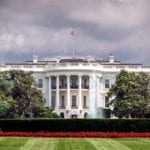PR crises seem inevitable and the damage they can do to reputation, trust and shareholder value is well known. Yet PR crises often catch companies and organizations unprepared. Here’s a step-by-step guide to help you begin crafting your PR crisis plan.
Crisis Management


PR Lessons From Facebook’s New Policies to Combat Disinformation
October 23rd, 2019 by Justin JoffeIt’s been an tumultuous week in Menlo Park, California. Facebook once again dominated the news cycle with a widely-maligned public speech from Mark Zuckerberg. Next was a series of new policies intended to curb hostile foreign governments from once again weaponizing the social network to influence our 2020 elections. For communicators, this saga has proved to be many things—a lens into the distrust that engulfs marketing communications, a lesson on the power of self-regulation, and a reminder of what transparency does (and doesn’t) look like in action.

Launching an Ad Campaign: A Step-by-Step Method for PR
October 8th, 2019 by Mark PasetskyThe digital era is wonderful in many ways, though social media can sink a brand that runs a tone-deaf ad campaign quicker than you can say, ‘Why didn’t we have a PR pro at the table in the first place?’ Here are seven tips for PR pros to consider that will help brands avoid cultural missteps when they roll out ad campaigns.

MGM Reaches Vegas Settlement, but Money Can’t Buy a Good Reputation
October 3rd, 2019 by Nicole SchumanRegardless of a settlement, MGM still needs to repair its reputation—not only with the people of Vegas, but America as a whole. It’s easy to throw money at a problem and walk away, but the sting of the initial reaction by MGM after the shootings will never be forgotten.

MGM Reaches Vegas Settlement, but Money Can’t Buy a Good Reputation
October 3rd, 2019 by Nicole SchumanNo amount of money can ever bring a person back from death. And a settlement reached two years after a national tragedy might be too late to repair a consumer’s perception of a brand. While… Continued

To Be or Not to BP: Why Shakespeare Cut Ties to Oil
October 2nd, 2019 by Seth ArensteinBrands need to be certain their values align with the actions they take. For nonprofits that means being cognizant of the sources of donations. As the venerable Royal Shakespeare Company in the U.K. learned this week, hell hath no fury like students with tickets that an environmentally-unfriendly brand subsidized.

Takeaways For Startup Communicators From WeWork’s IPO Crisis
October 1st, 2019 by Justin JoffeNeumann stepped down from his role as CEO on September 24th, and less than a week later, on Monday, September 30th, WeWork’s IPO was halted indefinitely. For PR pros working in a startup environment, WeWork’s very public fall from grace holds many lessons to take back to the open office. Let’s look at a few things that communicators at any startup can take away from WeWork’s problems.

After the Flood: A Clever Newsletter Keeps NY Commuters Informed
October 1st, 2019 by Sophie MaerowitzEverything old is new again. The nation’s largest public transport system has turned to a newsletter to keep commuters informed and entertained as they learn about the latest developments concerning The L-Train Project. NYC commuters love it.

Learning From the White House Talking Points PR Blunder
September 26th, 2019 by Nicole SchumanThe White House hosted a master class yesterday in how not to do crisis communications. Following the release of notes of a July telephone call between President Donald Trump and Ukrainian President Volodymyr Zelensky, some Democrats received a surprise—the GOP’s talking points about the call. Along with other mistakes this week, the incident emphasizes the importance of PR pros double-checking their work.

Thomas Cook Shutdown Spurs Travel Industry Crisis
September 24th, 2019 by Seth ArensteinOne person’s disaster can be another’s success. In the case of Thomas Cook’s fall, brands and organizations had a chance to help or hurt their reputations. Communicating and acting with compassion and care helped, of course. Taking advantage of the situation for excessive profits was bound to hurt, with communicators left to explain their brand’s seemingly predatory actions.


